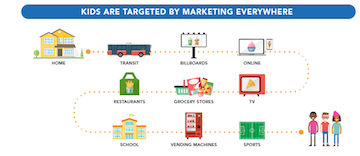Can Democracy Survive Big Data & Micro-Profiling in Elections? (CPDP 2018 Video)
Today’s political candidates and issue campaigns are fully integrated into the growing Big Data marketing infrastructure, with more and more companies in this sphere accelerating the pace of research and innovation and promising to transform how political campaigns and elections are conducted. Data management platforms, marketing clouds, and other new data services enable information about one’s finances, health, race, ethnicity, shopping behavior, and geo-location to be combined with political interests, reading habits, and voting records. Social media and digital platforms are facilitating many of these techniques, monetizing and normalizing “fake news,” “dark posts”, and other practices, and challenging fundamental principles such as privacy, data protection, and individual autonomy. It has been widely reported that political Big Data digital micro-targeting played a role in the election of President Trump as well as the Brexit vote in the UK, and is now the subject to growing scrutiny by regulatory authorities.
- Is the use of such technologies likely to cause harm and undermine the democratic process?
- What is the link between these technologies and fake news?
- How do policy frameworks in western democracies compare, in terms of controlling political election campaigns practices?
- What is the role of data protection legislation in protecting the privacy of voters?
- And what are the challenges for data protection authorities in addressing how commercial data can be sold or shared with political groups?
—-
Chair: Paul-Olivier Dehaye, PersonalDataIO (CH)
Moderator: Anna Fielder, Transatlantic Consumer Dialogue (UK)
Speakers: Michael McEvoy, Office for Information and Privacy Commissioner of British Columbia (CA); Irina Vasiliu, DG Justice, European Commission (EU); Jeffrey Chester, Center for Digital Democracy (US); Juhi Kulshrestha, Hans Bredow Institute for Media Research (DE)
